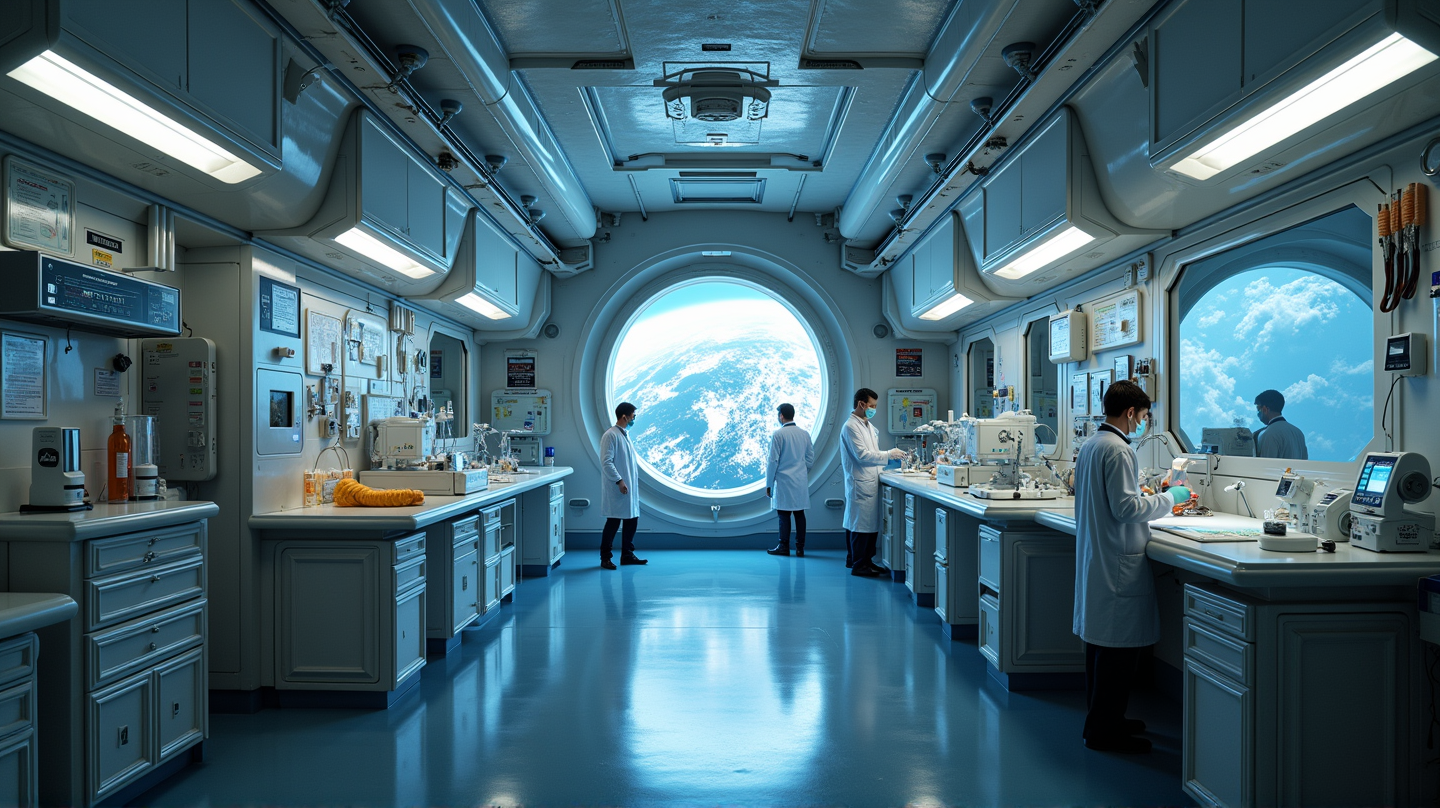Out-of-this-World Science: How Space Research Accelerates Medical Advances
Dr. Abba Zubair's research at Mayo Clinic leverages space's unique environment to drive transformative advances in medicine on Earth.

Unlocking Microgravity’s Potential for Medicine
In a groundbreaking endeavor unprecedentedly bridging Earth and the cosmos, Mayo Clinic’s Dr. Abba Zubair leads the vanguard of integrating space research with transformative medical applications. Dr. Zubair intertwines his passions for medicine and space exploration, harnessing the International Space Station (ISS) to delve into cancer, stroke, bone loss, and beyond. The microgravity milieu of space presents a unique laboratory, unveiling new insights that promise to revolutionize both astronaut care and patient treatment on Earth.
Space Science Aiding Cancer and Stroke Treatments
The environment experienced in the vacuum of space, with its absence of gravity and pervasive radiation, becomes an unexpected ally in the fight against stubborn diseases like cancer and stroke. As Dr. Zubair elucidates, “We want to leverage the space environment to better understand human physiology and, by extension, enhance therapeutic techniques.” His innovative research investigates whether leukemia stem cells and mesenchymal stem cells, key players in developing treatments, flourish in the absence of gravity, potentially improving therapies for blood cancer and osteoporosis.
The Future of Medical Space Travel
Imagine a future where space travel isn’t just for discovery but for delivering cutting-edge medical treatments. Dr. Zubair posits, “In space, cancer cells might become more vulnerable to chemotherapy. It opens the intriguing possibility of space being an optimal place for treating certain malignancies.” Though replicating such conditions on Earth presents challenges, the visionary approach could spearhead new avenues in oncological therapy and regenerative medicine.
An Invitation to Explore Endless Possibilities
The horizons of Dr. Zubair’s research extend beyond current understanding. His exploration could lay the groundwork for simulating space-like conditions on Earth, assisting in the manufacture of stem cells crucial for therapies like CAR-T or bone marrow transplants. The ramifications for those suffering from various diseases could be immense. This endeavor not only protects future astronauts from long-term radiative exposure, critical for missions to Mars, but also shields Earth-bound individuals from harmful radiation, such as that from nuclear incidents.
Concluding Thoughts
According to Mirage News, as we dare to dream and push the boundaries of our knowledge, the profound ways space exploration can impart “down-to-Earth” benefits becomes evident. “We’re just beginning to scratch the surface of what’s possible,” asserts Dr. Zubair with an inspiring clarity that echoes the potential of turning celestial observations into terrestrial triumphs.
In a world where collaboration is key, embracing these extraterrestrial insights could soon redefine how we understand and practice medical science, making it both a thrilling and hopeful journey for future generations.

